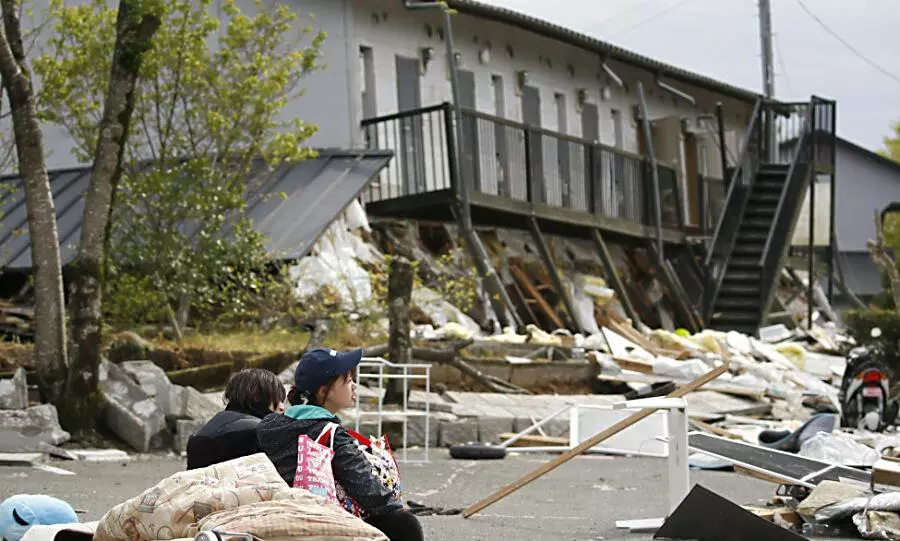
Rescue efforts intensify in Japan after 62 die in earthquake
text_fieldsTokyo: Japanese rescue teams, amidst the looming threat of harsh weather conditions, are diligently sifting through debris in a critical race against time following powerful earthquakes that have left a devastating toll of at least 62 lives in western Japan.
The urgency mounts as dozens are feared trapped under collapsed buildings.
The aftermath of a magnitude 7.6 earthquake near Noto, about 300 kilometres from Tokyo, was accompanied by a series of aftershocks, including a 4.9 magnitude tremor in Ishikawa prefecture, complicating rescue operations in the region. Tsunami warnings were issued after the quake, with waves exceeding 1 metre in certain areas.
Highlighting the urgency, Prime Minister Fumio Kishida emphasised the critical nature of the initial 72 hours for potential rescues. "More than 40 hours have passed. This is a race against time, and I feel that we are at a critical moment," Kishida stated, acknowledging reports of numerous individuals awaiting rescue under collapsed structures.
The peninsula of Noto poses logistical challenges in reaching affected communities, compounded by the disruption of essential services like water, power, and communication networks, reported ABC News.
Relief efforts are underway with distributions of essentials like water, blankets, and food. Search operations, involving canine units, military personnel, and firefighters, persist to locate the estimated trapped individuals, although exact numbers remain unclear.
Weather forecasts predicting heavy rain raise concerns about landslides and potential exacerbation of damage to already weakened structures. Temperatures dropping to around 4 degrees Celsius overnight add to the challenges faced by evacuees.
The death toll includes 29 in Wajima city, 22 in Suzu, and 11 in nearby towns, with additional fatalities anticipated, totaling at least 65 lives lost. Many others have sustained severe injuries.
The governor of Ishikawa, Hiroshi Hase, emphasised precautions against infectious diseases among evacuees, urging the use of masks, antiseptics, and hygiene practices. Ensuring adequate supplies of water and sanitary facilities for displaced individuals remains a priority.
Survivors, sheltering in evacuation centres, express concerns about hunger, cold conditions, sleep deprivation, and fear. Yasuo Kobatake, among them, describes enduring extreme cold and discomfort without adequate provisions.
The aftermath of the quakes and tsunami paints a grim picture, with overturned boats, blocked roads, debris from collapsed structures, and a large fire devastating a section of Wajima city.
Despite Japan's history of earthquakes and the looming threat of further seismic activity, no significant issues were reported at nuclear plants post the recent quake, ensuring uninterrupted critical operations.
Japan's systematic warning systems and societal preparedness are credited by disaster experts for their role in mitigating casualties and aiding rescue efforts in the aftermath of such catastrophic events.























